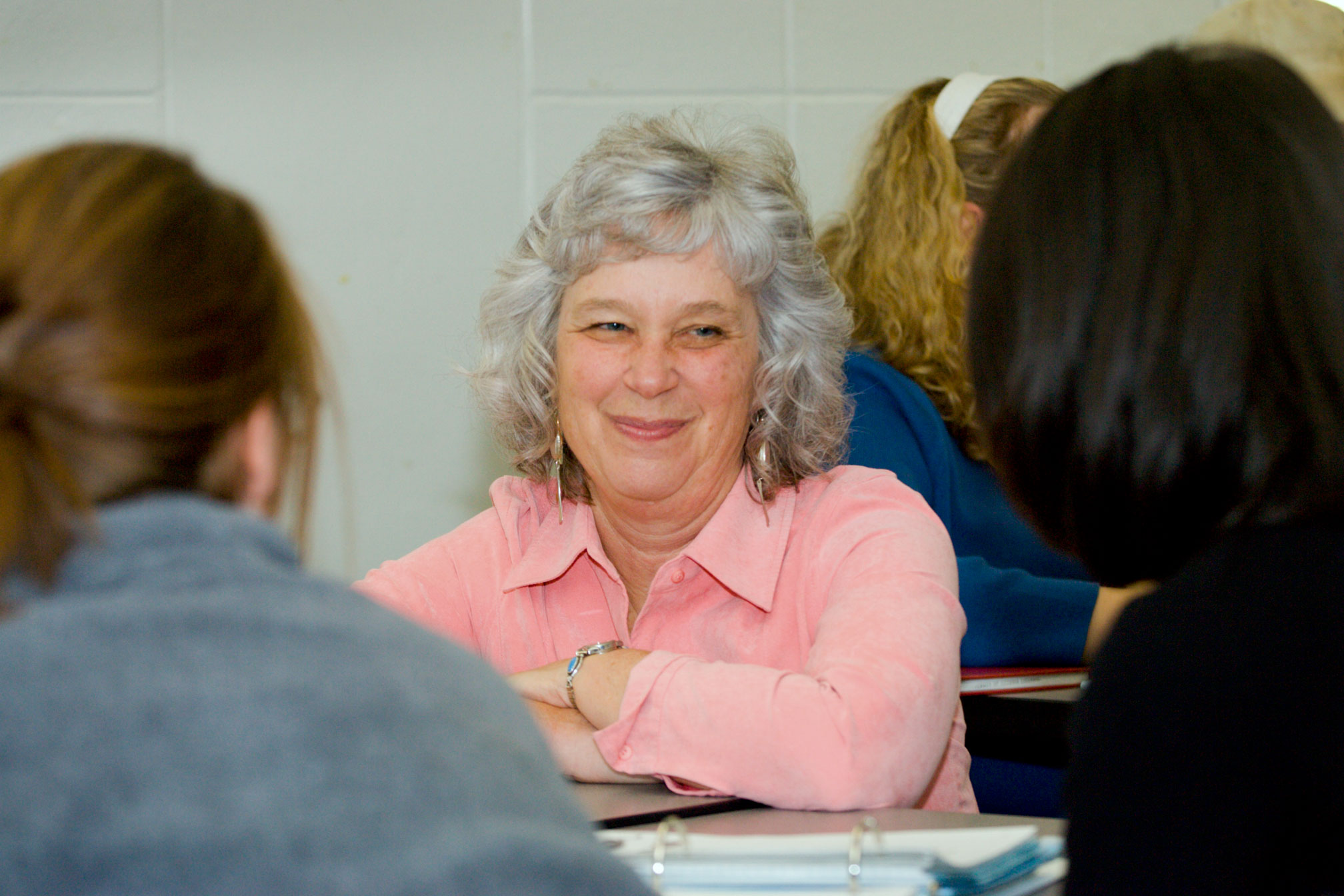There’s a disease spreading in graduate schools known as “ABD.” It affects students nearing a doctorate, targeting the overworked, the uninspired and the unsure.
Carriers are easy to spot. They’re usually teaching assistants or young professionals who vaguely cancel plans, mumbling something about working on a project.
Diagnosis consists of one question: Are you finished with school?
“All But Dissertation,” they reply.
JoBeth Allen, a professor in UGA’s Department of Language and Literacy Education, is as close to a faith healer as these students need. For the past six years, she’s led groups of graduate students to the mountaintop for a week with the goal of making them write. And write and write and write.
The retreat is a seven-day May term course in which 15 graduate students from a range of disciplines trek to Amicalola Falls State Park to get away from distractions and put their fingers to the keyboard.
Each of the students is required to have collected qualitative data-interviews, images, “numberless” data-and be in the process of converting that information into a paper, usually a dissertation or article.
“One of the things we saw was that after students collected all their data there was this question ‘What do I do now?’ ” Allen says. “The other impetus for us is that everybody-faculty, grad students, doctoral students-has trouble making time to write. So this was our solution.”
Under her guidance, students shrug off television, telephones and e-mail and fit their data into chapters and publishable narratives. She expects each student to spend six to eight hours writing per day.
But that’s not all. In addition to writing, she asks the students to bring along written material, from their own discipline and others, to use for inspiration and guidance. She also urges students to use the landscape.
“I advise everyone to take a hike or something throughout the day,” Allen says. “It’s beautiful, and that’s really part of getting away to write. Everyone usually hikes the waterfall once while we’re at Amicalola.”
It’s this pairing of nature and nurture that works to inspire and develop the students’ writing, she says. There’s nowhere like the wilderness to grow.
Every day the students meet with Allen for 30 minutes apiece. They bring her their work and tell her where they need help. They also have writing partners or groups for additional feedback.
“There’s a very strong belief, in our department especially, that writing is a community process and not an isolated, individual process,” she says.
Allen, a published author herself, has benefited from a similar experience. She and research colleagues have hit the beach to put their research together and start the word flow.
Getting feedback and finding inspiration isn’t only good for students’ egos, it can also help to develop a creative streak. When the students get together with peers outside their department, they get turned on to new ideas or ways of displaying information that can add a lot to a thesis or article, according to Allen.
In the old days all graduate writing “was so impersonal, so objective, so scientific sounding even if it wasn’t scientific. And in qualitative research especially, there are many more ways to do that,” Allen says.
By the time the students emerge from their chrysalis, most are packing at least one more chapter or first draft of a professional article.
“And none of them think they can do it,” Allen says, a sly smile spreading on her face.
The effects of the course are apparent in its students. In interviews, they heaped praises upon their teacher, many giving Allen credit for their ability to finish their dissertations.
“She bridges a diverse community of junior researchers within a very short time. She crafts writers and spirits,” says doctoral student Rachelle Washington.
Language and literacy student Jeff Orr, who also took the course, says, “(Allen) really balances encouragement and critique with the expectation of quality writing and productive creation of text. There’s such a concentrated period of writing and thus a real need for what she does.”
The only problem with the course is that it fills up quickly, often days after the sign-up sheet hits the door. Word has gotten out that it’s a big help and that’s a real draw, Washington says.
She should know. Washington took the course twice. She’s almost finished with school now, but she knows that her need to write academically isn’t going to stop, which has led her to hope a new course is added.
“I will graduate in May, and wonder when there will be a similar retreat designed for those of us heading to university posts. Any ideas, Dr. Allen? I’m hopeful,” she says.


